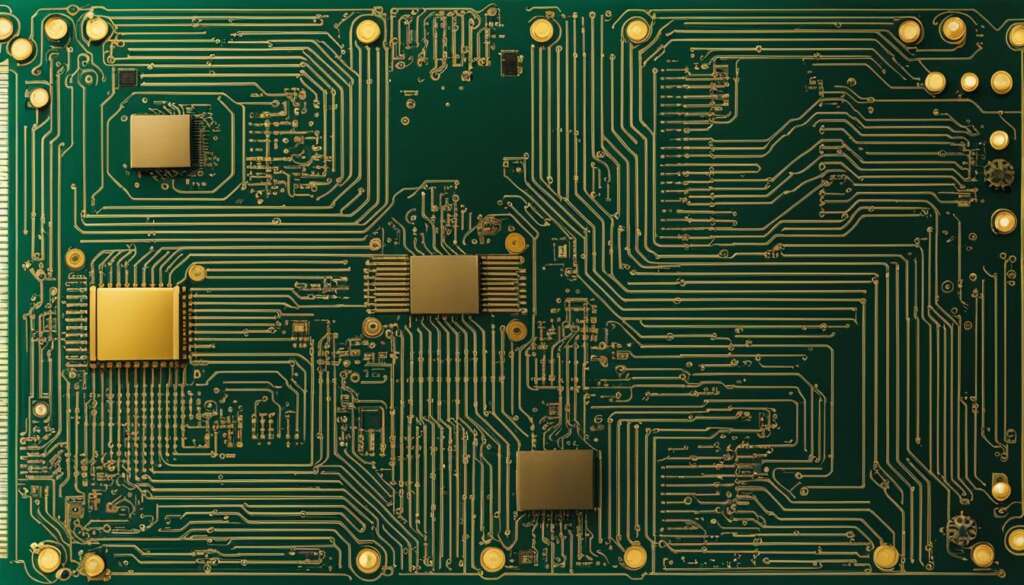Table of Contents
In the fast-paced world of technology, computer programmers are the driving force behind innovation. With their expertise in programming languages, software development, and web development, they play a crucial role in shaping the digital landscape. From creating complex algorithms to solving coding challenges, computer programmers possess the coding skills that are essential to the success of the IT industry.
In this article, we will delve into the world of computer programming and explore the exciting job opportunities it offers. Whether you’re a seasoned programmer or aspiring to enter the field, understanding the importance of computer science and honing your coding skills can open doors to a rewarding career. So, join us as we explore the realm of programming and discover the influential programmers who have made their mark in the tech industry.
Alan Turing: Father of Theoretical Computer Science
Alan Turing, a British mathematician and computer scientist, is widely regarded as the father of theoretical computer science. His groundbreaking work in the field of computer science has had a profound impact on the development of artificial intelligence, cryptography, and computing as a whole.
Turing’s most notable contribution was his conceptualization of the Turing Machine, a theoretical device that laid the foundation for modern computer architecture. The Turing Machine serves as a model of computation and is considered the basis for all modern computers. By abstracting the concept of computation, Turing revolutionized the way we think about problem-solving and the limits of computation.
In addition to his work on the Turing Machine, Turing played a crucial role during World War II in deciphering the Enigma code used by the German military. His contributions to cryptography and code-breaking were instrumental in the Allied victory and had a lasting impact on the field of computer science.
“We can only see a short distance ahead, but we can see plenty there that needs to be done.” – Alan Turing
The Legacy of Alan Turing
Alan Turing’s work continues to shape the field of computer science and has paved the way for advancements in artificial intelligence, cryptography, and theoretical computer science. His ability to combine mathematical rigor with practical problem-solving has made him an inspiration to generations of computer scientists.
Today, Turing’s ideas and concepts are at the core of modern computing, guiding the development of new algorithms, encryption techniques, and computational models. His visionary thinking and interdisciplinary approach have left an indelible mark on the tech industry and continue to drive innovation in the field of computer science.
Table: Contributions of Alan Turing
| Field | Contributions |
|---|---|
| Theoretical Computer Science | Conceptualization of the Turing Machine, a theoretical model of computation |
| Artificial Intelligence | Pioneering work in machine intelligence and computational thinking |
| Cryptography | Code-breaking efforts during World War II and contributions to cryptography |
Alan Turing’s remarkable intellect, innovative thinking, and profound contributions to the field of computer science solidify his status as one of the most influential figures in the history of technology. His legacy will continue to inspire and shape the future of computer science and computational thinking.
Ada Lovelace: First Computer Programmer
Ada Lovelace, an English mathematician and writer, is considered the first computer programmer. She worked alongside Charles Babbage on his Analytical Engine, a general-purpose mechanical computer. Lovelace’s notes on the Analytical Engine included the first published algorithm designed to be processed by a machine. Her visionary work and understanding of the creative potential of computing have inspired generations of women in the fields of science and technology.

As the daughter of renowned poet Lord Byron, Lovelace showed early aptitude for mathematics and logic. When she met Babbage, she recognized the significance of his machine and saw its potential to generate not just numbers, but also symbols, images, and music. Lovelace envisioned the Analytical Engine as a tool for more than just mathematical calculations, but as a device that could manipulate any kind of information.
“The Analytical Engine weaves algebraic patterns just as the Jacquard loom weaves flowers and leaves.”
Lovelace’s notes on the Analytical Engine included a detailed algorithm for computing Bernoulli numbers, making her the first to describe a programming sequence for a machine. She understood the concept of loops and recursion, demonstrating immense foresight into the possibilities of future computing. Lovelace’s work highlighted the potential for computers to generate more than just numerical results, foreshadowing the development of modern programming languages and the broad applications of computational thinking.
Bill Gates: Tech Industry Pioneer
Bill Gates is a renowned software developer, businessman, and philanthropist, best known as the founder of Microsoft, the world’s largest personal computer software company. His contributions to the tech industry have been groundbreaking, shaping the digital landscape as we know it today.
Under Gates’ leadership, Microsoft revolutionized the personal computer software market with its flagship product, the Windows operating system. Windows became the dominant operating system for PCs, providing a user-friendly interface and a wide range of software applications.
In addition to his achievements in the technology sector, Gates is also known for his philanthropy work. He established the Bill and Melinda Gates Foundation, one of the largest charitable organizations worldwide. The foundation focuses on improving global health, reducing poverty, and enhancing education opportunities for underprivileged communities.
Gates’ impact on the tech industry and society at large is immeasurable. His vision, entrepreneurial spirit, and commitment to making a positive difference continue to inspire generations of innovators around the world.
| Bill Gates’ Achievements | Highlights |
|---|---|
| Founder of Microsoft | Revolutionized the personal computer software industry |
| Windows Operating System | Developed the widely used Windows operating system |
| Philanthropy | Established the Bill and Melinda Gates Foundation |
“Success is a lousy teacher. It seduces smart people into thinking they can’t lose.” – Bill Gates
Steve Jobs: Innovator and Visionary
The name Steve Jobs is synonymous with innovation and revolution in the tech industry. As the co-founder of Apple, Jobs played a pivotal role in shaping the digital landscape and bringing groundbreaking products to the market. One of his most iconic creations was the Macintosh, a personal computer that introduced the concept of a graphical user interface (GUI) to the mainstream.
The Macintosh, released in 1984, was a game-changer in the world of computing. Its user-friendly interface allowed individuals to interact with their computers using icons, windows, and a mouse, making it more accessible and intuitive. This marked a significant departure from the text-based interfaces that were prevalent at the time.
Following the success of the Macintosh, Jobs continued to push the boundaries of innovation with the introduction of iconic devices such as the iPhone and the iPad. The iPhone, released in 2007, revolutionized the mobile phone industry by combining sleek design, advanced functionality, and a touch-based interface. It set the benchmark for smartphones and paved the way for the app-driven mobile ecosystem we know today.
The iPad, released in 2010, brought about a new era of tablet computing. With its larger screen and intuitive interface, the iPad redefined how we interact with digital content, bridging the gap between smartphones and laptops. Its popularity spawned a new market for tablet devices and changed the way we consume media, browse the internet, and engage with various applications.
| Product | Release Year | Key Features |
|---|---|---|
| Macintosh | 1984 | Graphical User Interface (GUI) |
| iPhone | 2007 | Touch-based interface, App ecosystem |
| iPad | 2010 | Tablet computing, Intuitive interface |
Steve Jobs’ visionary approach to product design, coupled with his relentless pursuit of excellence, has left an indelible mark on the tech industry. His ability to create innovative and intuitive products that resonate with consumers has solidified Apple’s position as a leader in the market. Even after his passing in 2011, Jobs’ legacy continues to inspire and influence the development of new technologies and devices.
Linus Torvalds: Creator of Linux Operating System
Linus Torvalds, a Finnish-American computer scientist, is renowned as the creator of the Linux operating system. Linux is an open-source software that has gained widespread popularity as a reliable and customizable alternative to proprietary operating systems. Torvalds initially developed Linux as a personal project, but it has since evolved into a global collaborative effort, with contributions from programmers worldwide.
Linux’s key features include stability, security, and flexibility, making it suitable for various applications, from servers and supercomputers to mobile devices and embedded systems. Its open-source nature allows developers to access and modify the source code, enabling continuous improvements and customization. The Linux community’s dedication to innovation and collaboration has made it a cornerstone of the open-source software movement.
“I’m doing a (free) operating system (just a hobby, won’t be big and professional like gnu) for 386(486) AT clones.” – Linus Torvalds
In addition to creating Linux, Torvalds is also credited with developing the Git version control system. Git revolutionized collaborative coding by simplifying the process of tracking changes and merging code from multiple contributors. It has become the standard version control system for software development, enabling efficient collaboration and project management in both open-source and commercial environments.
The Impact of Linux and Open-Source Software
The creation of Linux and the success of open-source software has had far-reaching implications for the tech industry and beyond. Linux has become the operating system of choice for many large organizations, powering critical infrastructure and driving technological innovation. Its flexibility and cost-effectiveness have made it particularly popular among startups and small businesses.
Furthermore, the open-source model championed by Linux has fostered a culture of collaboration, transparency, and shared knowledge. This collaborative mindset has extended beyond software development, inspiring similar approaches in various fields, such as open-source hardware and citizen science initiatives.
| Advantages of Linux and Open-Source Software | Disadvantages of Linux and Open-Source Software |
|---|---|
|
|
Conclusion
Computer programmers play a crucial role in driving technological innovations in the tech industry. Their expertise in coding, software development, and computer science has paved the way for groundbreaking advancements. From the early pioneers like Alan Turing and Ada Lovelace to modern-day influencers such as Bill Gates, Steve Jobs, and Linus Torvalds, these influential programmers have left an indelible mark on the digital landscape.
Through their work, computer programmers have contributed to the development of theoretical computer science, programming languages, and open-source software. Their creations, like the Turing Machine, Windows operating system, Apple’s Macintosh, and the Linux operating system, have revolutionized the way we interact with technology.
Within the ever-evolving tech industry, computer programmers continue to drive innovation and shape the future. With coding skills and a strong understanding of software development, individuals can pursue exciting job opportunities and make lasting contributions to society. As the demand for skilled computer programmers grows, the influence of these visionary individuals will continue to inspire future generations of tech enthusiasts.
In conclusion, the role of a computer programmer in the tech industry cannot be overstated. Their expertise and creativity push the boundaries of what is possible, shaping the future of technology and driving innovation across various sectors. By standing on the shoulders of influential programmers and carrying the torch forward, computer programmers play an essential role in propelling the world into a more digital and interconnected future.
FAQ
What is computer programming?
Computer programming is the process of designing, writing, testing, and maintaining computer programs. It involves using programming languages to create instructions that tell computers how to perform specific tasks or functions.
What skills do I need to become a computer programmer?
To become a computer programmer, you will need strong logical and analytical thinking skills. Proficiency in programming languages, problem-solving abilities, attention to detail, and the ability to work collaboratively are also essential. Continuous learning and staying up to date with the latest technology trends is crucial in this field.
What job opportunities are available for computer programmers?
Computer programmers have a wide range of job opportunities in the IT industry. They can work as software developers, web developers, systems analysts, database administrators, or software engineers. Industries such as finance, healthcare, entertainment, and e-commerce all require computer programmers to develop and maintain their technology systems.
How do computer programmers contribute to technological innovations?
Computer programmers are at the forefront of technological advancements. They play a key role in developing new software, programming languages, and tools that drive innovation. They also solve complex problems and optimize existing software and systems to improve performance and efficiency.
How can I learn computer programming?
There are various ways to learn computer programming. You can enroll in computer science or programming courses at universities or online platforms. Self-study with online tutorials, textbooks, and coding exercises is also a common approach. Practice and hands-on experience are crucial, so working on personal coding projects or contributing to open-source projects can enhance your skills.
What programming languages should I learn?
The choice of programming languages depends on your specific goals and interests. Some popular programming languages include Python, Java, C++, JavaScript, and Ruby. It’s advisable to start with one or two languages and then expand your knowledge based on the projects and industries you want to work in.
How much do computer programmers earn?
The salary of computer programmers varies depending on factors such as location, experience, and the specific industry. However, computer programmers generally earn competitive salaries, with the median annual wage being around £45,000 in the United Kingdom.
What is the future outlook for computer programmers?
The demand for computer programmers is expected to continue to grow in the coming years. As technology continues to advance, there will be a need for skilled programmers to develop and maintain software and systems. A career in computer programming offers excellent job prospects and opportunities for professional growth.
Can I become a computer programmer without a degree?
While a degree in computer science or a related field can be beneficial, it is possible to become a computer programmer without one. Many successful programmers have learned through self-study and practical experience. Building a strong portfolio and demonstrating your coding skills through personal projects and open-source contributions can help you establish yourself in the field.
What are the challenges faced by computer programmers?
Computer programmers face challenges such as debugging and solving complex coding issues, keeping up with evolving programming languages and technologies, and working under tight deadlines. Adapting to changing project requirements and collaborating effectively with other team members can also be demanding but rewarding aspects of the job.












